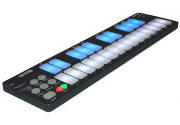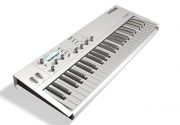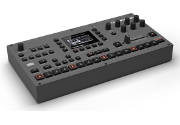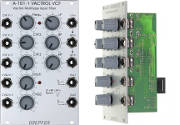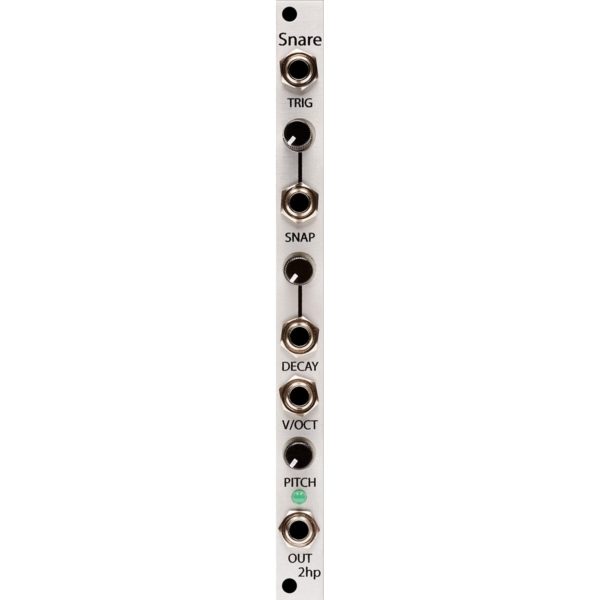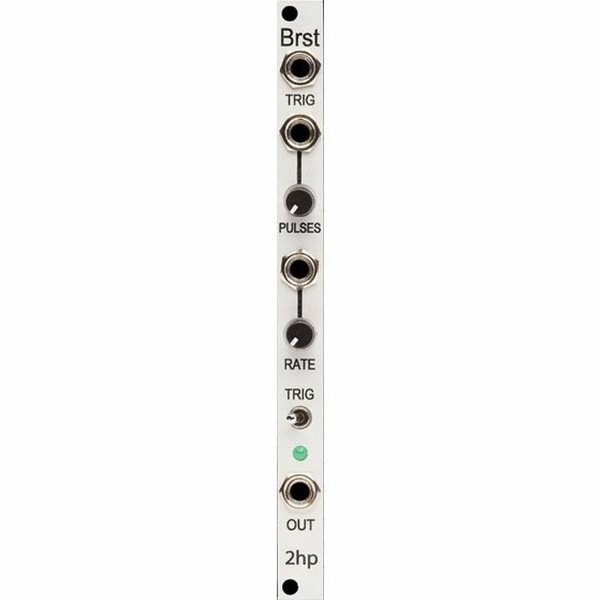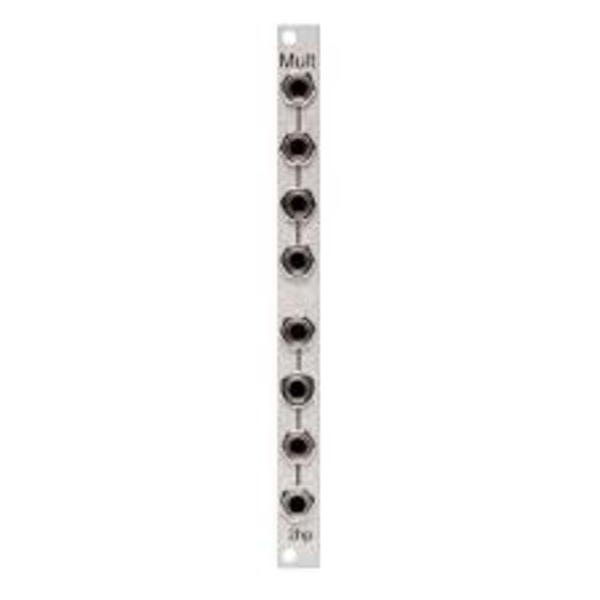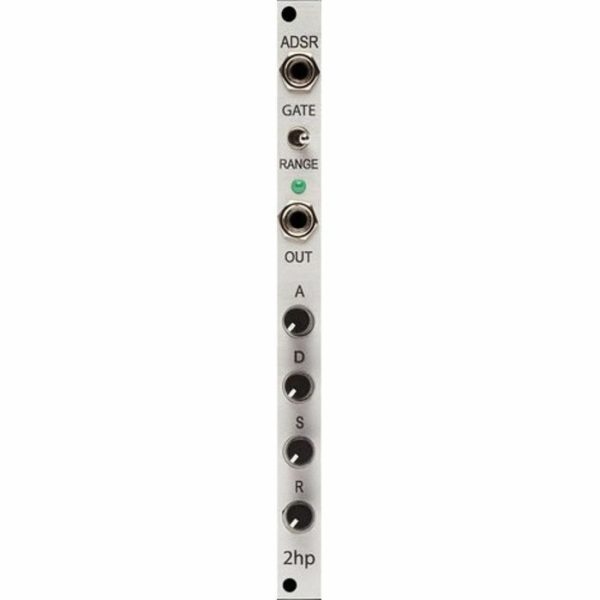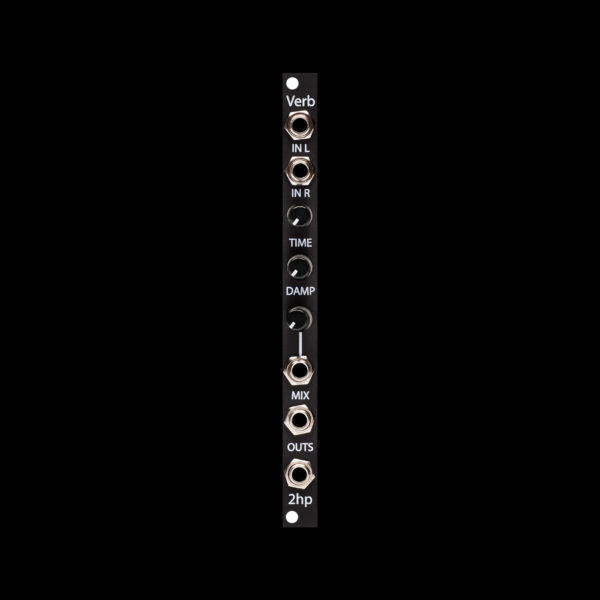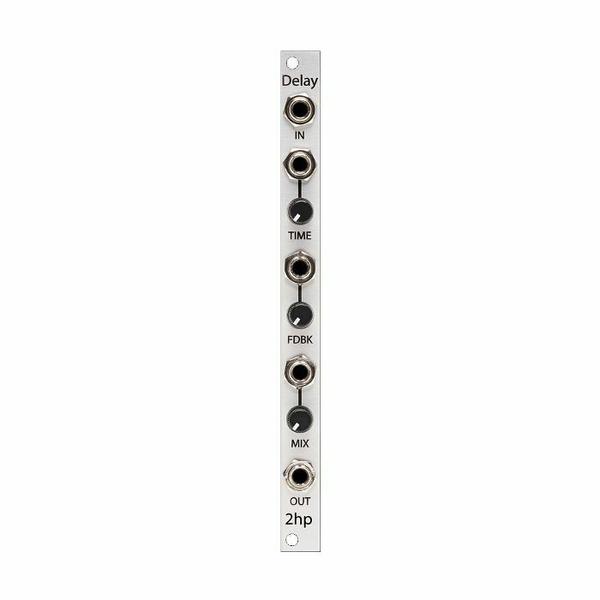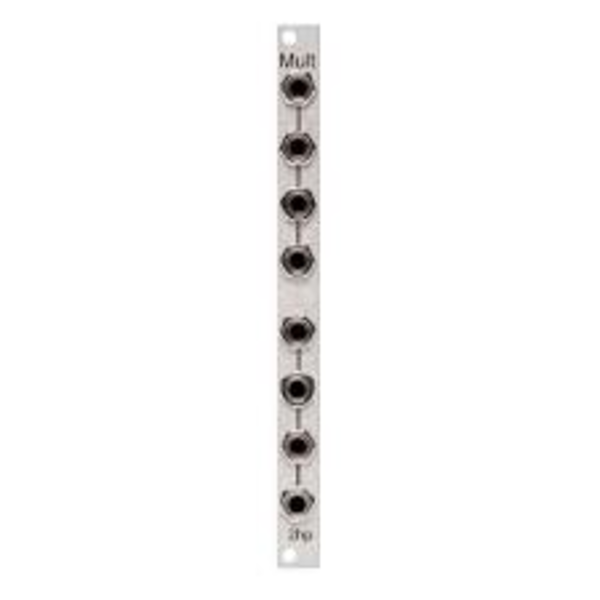After Later Audios Currents is a replica of the powerful function generator Tides 2 by Mutable Instruments.
A shortcoming of analog function generators: As soon as you edit the curve characteristics while being in cycle mode, the frequency changes. Quite annoying, especially with the module being used as a VCO. Currents does not have this problem. You can utilize the circuit as a digital, voltage-controlled AD / AR envelope or as an audio respectively low-frequency oscillator with dynamic wave shaping. New in the second version: There are four outputs, which can emit detuned, de-phased or cross-faded signals. Algorithms and audio quality have been improved. The CV inputs are now equipped with bipolar attenuators.
Three modes:
- one-shot AD envelope (green LED)
- Loop mode (LED off)
- one-shot AR envelope (red LED)
In the envelope modes, the module requires a trigger signal.
Three frequency ranges: low (2min-2Hz, green LED), medium (0.125Hz-32Hz, LED off), high (8Hz-2kHz, red LED). The high range is optimized for audio and the shape/slope parameters have different characteristics. In addition to the range switches the frequency is controlled with the frequency control in a range of +/-4 octaves. There’s a 1V/octave input and a FM input with polarizer. When the FM socket is unused the polarizer will act as fine tune control. In loop mode a gate or trigger at the trigger input will reset the phase of the wave, in envelope mode it will fire the envelope.
Four voltage-controllable parameters equipped with bipolar attenuators determine the waveform: Shape sets the character of the wave, providing different combinations of linear, exponential and logarithmic for the rising and falling segments of the wave. Slope controls the balance between rising and falling waves. Fully counterclockwise the attack is zero and the release has the length of one cycle (vice versa in fully clockwise position). In the center position, both segments have the same length. Smoothness has two functions: in the center position nothing happens, left of the center it acts as a 12dB lowpass filter’s cutoff control; right of the center position it’s a wave multiplier. Shift/Level controls the output polarization and shift. Depending on the output mode selected, this control adjusts either the amplitude and polarity of the first output (LED B off) or the shift of amplitude, time or frequency between each of the four outputs (LED B on).
Four alternative output modes are available:
- different shapes: each output produces a different waveform
- different amplitudes: voltage controllable distribution of the signal to all four outputs
- different times: voltage controllable phase of the signal
- different frequencies: outputs 2, 3 and 4 are shifted up or down in frequency relative to output 1, enabling the creation of chords or polyrhythmic elements
| HE: | 3 |
| TE: | 14 |
| Power consumption +12V: | 50 |
| Power consumption -12V: | 20 |

